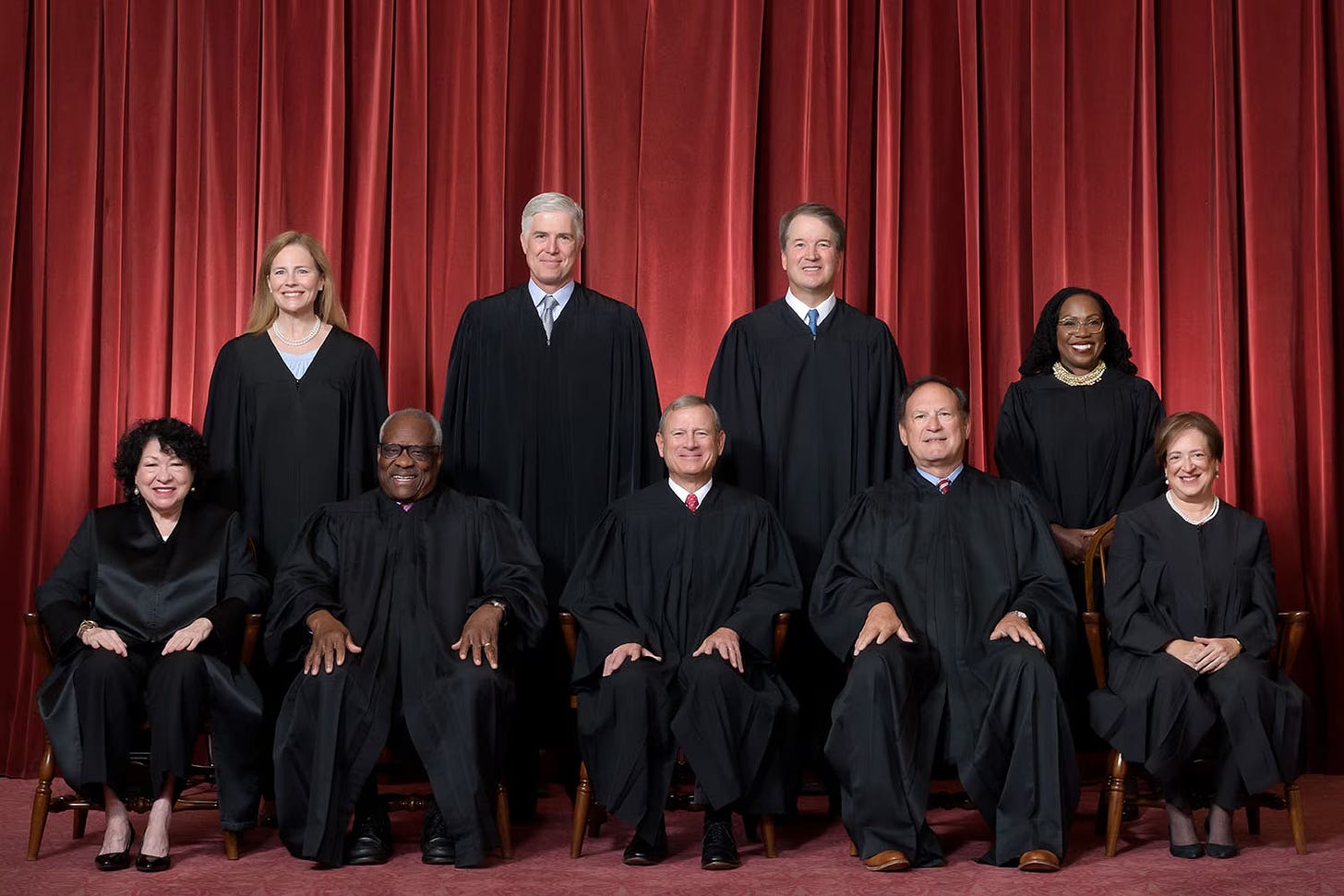W.J. Astore
Injustices, Not Justice
A big part of the American experiment is the idea we are a nation of laws as defined by the U.S. Constitution. The law is supposed to apply equally to all, and disinterested, impartial, justices are supposed to make rulings that are unaffected by money or race or religion or any other factor other than the law itself and what’s right and what isn’t.
That doesn’t describe today’s Supreme Court of the U.S. (SCOTUS).

Justice Clarence Thomas has accepted all kinds of undeclared gifts from a billionaire supporter, including tuition for his great-nephew at private boarding schools. Justice Neil Gorsuch profited from a real estate transaction with a rich law firm CEO with extensive business before the court. Apparently, SCOTUS polices itself here, and so far the SCOTUS cop on watch is asleep.
Justice Brett Kavanaugh gained his seat under a storm of controversy. I wrote in September 2018 that he should withdraw his name from consideration, based on the demeanor he showed at his Senate hearing, but of course he didn’t. Justice Amy Coney Barrett was specifically “saved” by President Trump to replace Ruth Bader Ginsburg; everyone knew she was a conservative Catholic opposed to abortion with a clear record of being pro-business to boot.
You’d think the #1 criterion for a SCOTUS justice would be unassailable integrity, but today it seems to be predictable partisan positions (both political parties are guilty here, though Republicans are more blatant). Allegiance to moneyed interests is a big plus. The latter point is why these justices see no problem with accepting “gifts,” otherwise known as bribes (for that is what they are, in plain speak).
SCOTUS, in short, is becoming a tinier version of Congress, featuring partisan hacks serving elite interests. Of course, not all SCOTUS justices are equally guilty here, but if the court fails to police itself, they are all accessories to the actions of Thomas, Gorsuch, et al.
If we had the best legal minds of unassailable integrity on SCOTUS, a layman like me would have little chance of predicting how the court would rule. Yet we generally know ahead of time the decision SCOTUS will reach and even how the justices will vote.
Sadly, partisan predictability and allegiance to powerful interests rule. And so we have a SCOTUS featuring an increasing number of injustices in place of justice.


